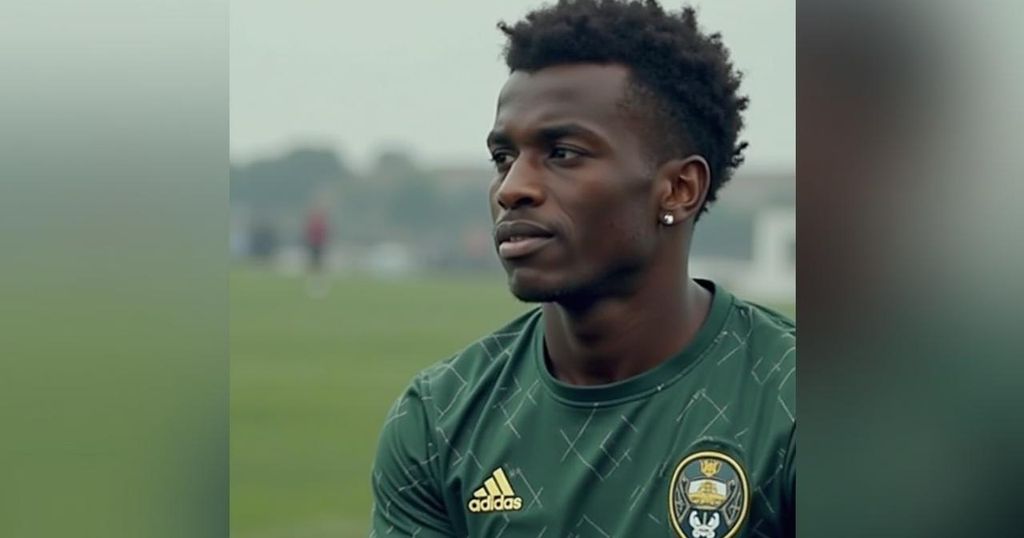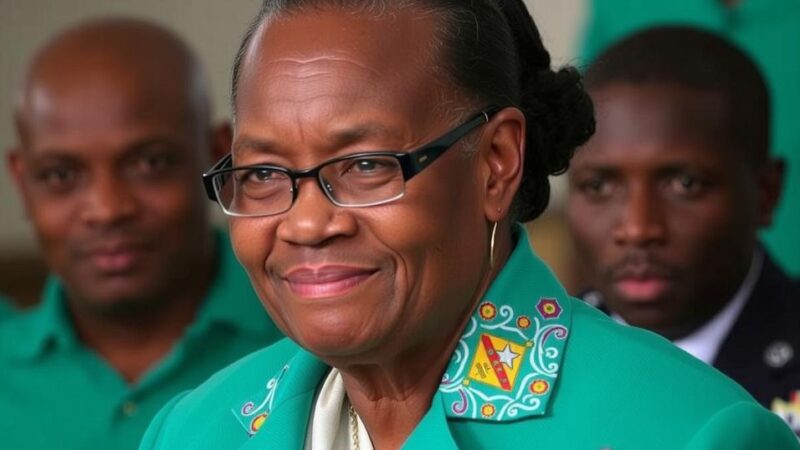Leicester City’s Wilfred Ndidi and his Nigerian teammates have claimed they are being held hostage at Al-Abraq airport in Libya after a flight diversion stranded them without food or water for over 12 hours. The players accuse the Libyan government of sabotaging their effort to compete in an Africa Cup of Nations qualifier and have announced their intention to boycott the match. Players have called on the Nigerian government for aid and voiced their frustrations on social media regarding the treatment they have received.
Wilfred Ndidi of Leicester City has alleged that he and his Nigerian teammates are being effectively held hostage at an airport in Libya after their flight was diverted to Al-Abraq airport, which is presently closed. The Super Eagles were on their way to Benghazi for an Africa Cup of Nations qualifier against Libya when their plane experienced this unfortunate detour and landed four hours away from their intended destination. According to reports, the players have been stranded for over 12 hours without food or water. They have raised concerns that the Libyan government may be attempting to undermine their ability to perform due to prior complaints of “hostile treatment” during their previous encounter. As a result of these circumstances, the Nigerian team has declared their intention to boycott the match, having been confined to the Al-Abraq terminal without any possibility of making alternative travel arrangements. In an emotional post on Instagram, Ndidi stated: “This is not football. Very embarrassing. Hostage to a national team. Disgrace.” Victor Boniface, a forward for Bayer Leverkusen, echoed similar sentiments in a tweet to the Confederation of African Football (CAF): “Been at the airport for almost 13 hours no food no wifi nowhere to sleep African we can do better.” William Troost-Ekong, a former Watford player now in Saudi Arabia, provided a more detailed account via a thread on social media platform X, describing the dire situation: “12+ hours in an abandoned airport in Libya after our plane was diverted whilst descending. The Libyan government rescinded our approved landing in Benghazi with no reason. They’ve locked the airport gates and left us without phone connection, food or drink. All to play mind games.” Troost-Ekong criticized the situation as disgraceful, highlighting that even the Tunisian pilot was astonished by the conditions experienced. He noted the total lack of access to accommodation, stating: “Upon arrival he tried to find a nearby airport to rest with his crew to be denied at every hotel again under Government instruction. He could sleep there but NO NIGERIAN crew members allowed.” The team has now requested intervention from the Nigerian Government for their rescue, as they refuse to participate in the game under these problematic conditions, asserting, “CAF should look at the report and what is happening here.” The players emphasized their right to a respectful environment in international football and made their stance clear regarding the necessity for respect towards guest teams in Nigeria.
This incident underscores the ongoing challenges faced by African teams in international matches, particularly relating to travel logistics and security. The Super Eagles’ current predicament reflects broader issues within the region regarding sports diplomacy, as tensions with host nations can impact the integrity of competitions. Players contend with not only sporting pressures but also significant operational challenges related to their safety and well-being during international fixtures. Their boycott decision may signal a stance against repeated diplomatic slights and adverse conditions encountered while representing their countries on global platforms.
In summary, the situation involving the Nigerian national football team, as articulated by players including Wilfred Ndidi and William Troost-Ekong, raises important concerns about the treatment of teams during international competitions. The players firmly refuse to partake in matches under conditions they deem disgraceful, illustrating the need for improved oversight by governing bodies such as CAF to ensure equitable and respectful conditions for all participating nations. The Super Eagles have set a precedent by prioritizing their dignity and well-being over competition, demanding necessary intervention from their national government.
Original Source: www.mirror.co.uk







